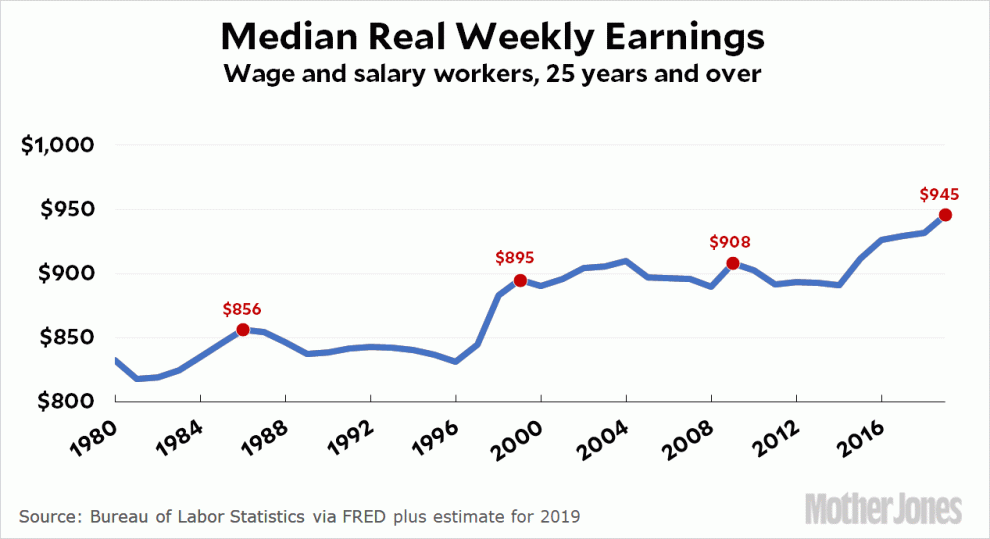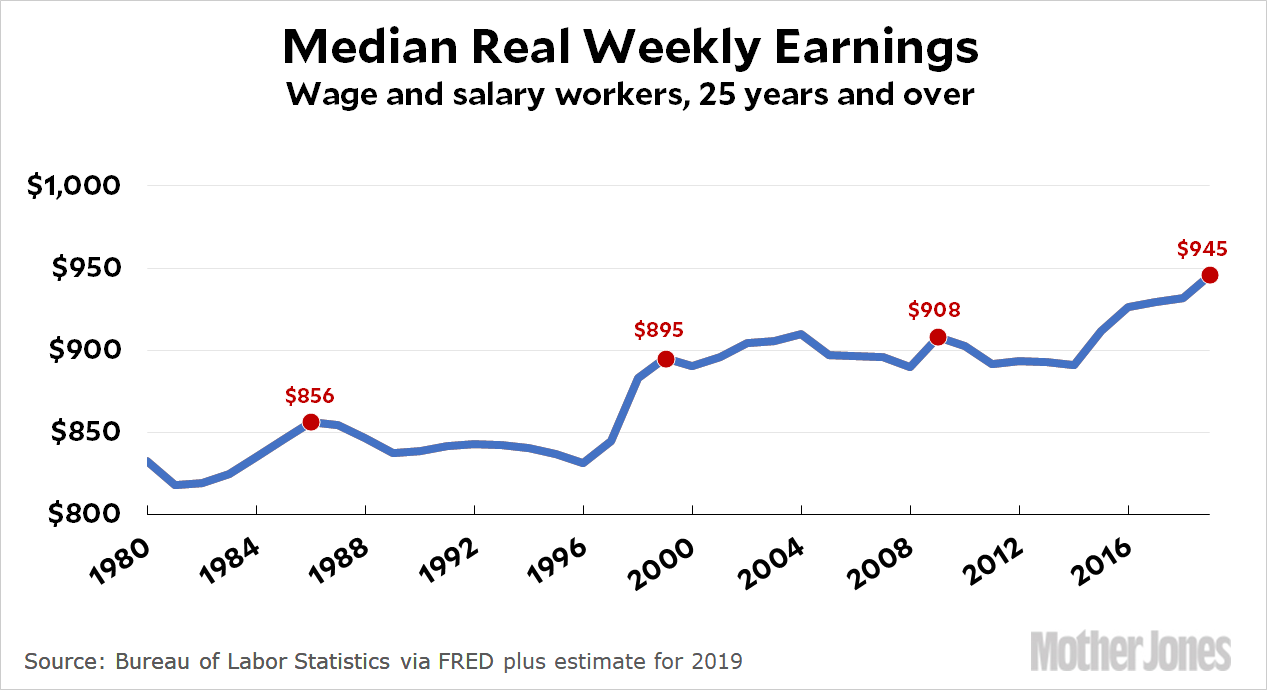
Jared Bernstein says one of the most important lessons of the past decade is that unemployment can drop to very low levels without pushing up inflation. I’m less sure about that. During the dotcom boom of the late 90s, unemployment also dropped below 4 percent but inflation never got out of control. Ditto for the housing bubble of the aughts. Maybe the lesson isn’t so new after all?
So let’s step back and narrow our view. Instead of looking at broad inflation, let’s look at the precise thing that unemployment ought to affect: wages. Here are real weekly earnings over the past few decades, with the peaks of economic cycles noted in red:

At the peak of the dotcom boom in 1999, real wages increased 4.5 percent from the previous peak. During the subsequent housing bubble wages increased hardly at all. And during our current economic cycle, real wages have increased 4.1 percent from the previous peak—so far.
Now, there are lots of ways of measuring wages and lots of ways of measuring inflation, and you can get different results depending on which ones you use. I’m using usual weekly earnings for full-time employees and CPI-U-RS for inflation. However, I briefly looked at other measures and they weren’t very different. This one gives you a pretty good look at the general shape of things.
And the bottom line is that, compared to historical figures, wages have increased substantially since 2014. Low unemployment appears to push wages higher just like you’d expect.
So this prompts a different question: how is it that wages can go up but overall inflation remains so subdued? That seems to be the real disconnect here. During the dotcom boom, wages went up but inflation remained around 3 percent. During the housing bubble, wages didn’t go up and inflation remained around 3-4 percent. Right now, wages are going up but inflation has remained around 2 percent. Wages no longer seem to have much correlation with overall inflation.
I haven’t seen anyone address this specific issue, but I’d be interested in hearing more about it. Is this a real phenomenon, or have I made some kind of mistake in my calculations? Is it just a US phenomenon, or are we seeing the same thing elsewhere? What’s the deal?















